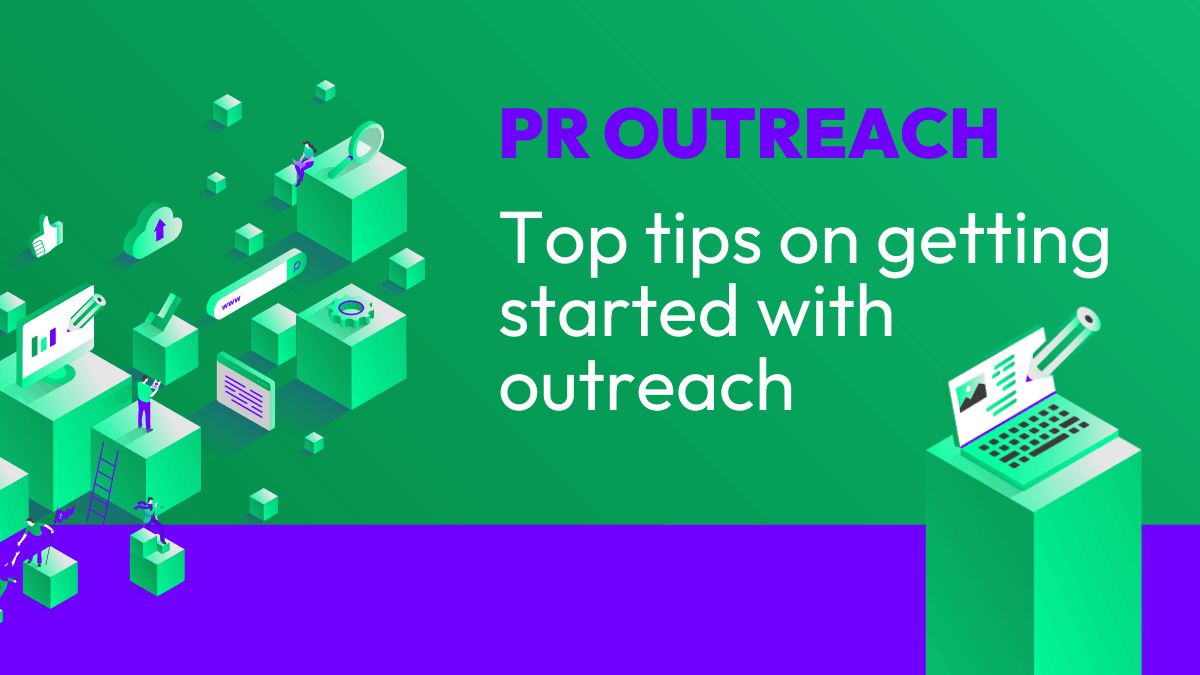In the era of digital marketing, every opportunity to improve your brand’s Google ranking counts.
As an aspect of sophisticated SEO (Search Engine Optimisation), link building tactics can make a considerable difference. But what of the times when information relating to your company that is displayed on other sites or pages does not include an active link?
Otherwise known as a brand mention or ”˜implied link’. In this article, we discuss these types of brand mentions and ask whether or not they make a difference to your online visibility and accessibility.
We’ll also explore the opinions of experts in the fields of digital marketing and SEO to discover what they think about the issue.
What Constitutes A Brand Mention?
The term “brand mention”, or “linkless mention”, usually refers to occasions when your brand or one of its references is cited or referenced by another company – perhaps in a blog post or study published on its site – but no hyperlink is included.
This means that there is no direct access from the published information to your online profile or contact details.
Brand Mention
Linked Mention
Many brand mentions occur as the result of a company undertaking outreach as part of their digital marketing plan, so, from this perspective, their purpose is to improve that company’s ranking on Google and drive more traffic to its website.
As well as “brand mentions” and “linkless mentions”, another name for this type of reference is an “implied link”, suggesting that they are recognised by Google as a viable addition to a brand’s SEO.
Why Do Some Companies Refuse to Include Links?
There are several reasons why other organisations may not wish to include an express link to your brand. The possibility that companies producing online content may share express links to other businesses in return for payment or other favours – instead of doing so because they trust and respect the company they are citing – may detract from their integrity and see them accused of “selling out” or penalised for corrupt endorsement schemes.
Google itself works to prioritise relevant, valuable links to steer users away from click-hungry, low-quality “content farms” and link schemes.
If Google does indeed significantly take into account linkless mentions – perhaps as a means of encouraging more organic, trustworthy content, this may prove to be the future of digital marketing.
It’s likely that if this is the case, we’ll see further proof of Google’s interaction with brand mentions as a method of ranking as time goes by.
Do Brand Mentions Have Any Impact On SEO?
There is no clear answer to this question. There are many business owners and marketing specialists who believe that brand mentions constitute a valid addition to SEO, and there are many who don’t.
It’s hard to discern the exact methods and algorithms employed by Google and other search engines when it comes to the ranking of your brand’s name and details within their results.
However, one major argument for the inclusion of linkless brand mentions is that Google registers these citations as positive trust signals and affirmations of a brand’s authority.
Google’s patent for their “Panda” algorithm mentions that links taken into account when it comes to search engine rankings include both “express links” (hyperlinks) and “implied links”. It goes on to describe an “implied link” as “a reference to a target resource, e.g., a citation to the target resource, which is included in a source resource but is not an express link to the target resource”.
Arguments For Brand Mentions
As mentioned in this article by Search Engine Land, Google does not simply rank brands by the number of online mentions they have received, but also by the nature of “sentiment” of these mentions.
This helps them to discern how trustworthy a company is before their place within the search results is ascertained. For them to do this, other aspects of each mention are likely analysed, besides the presence of a hyperlink (or lack thereof).
As a result, many SEO specialists believe that Google includes linkless mentions in the building of their ranking algorithms, as its reach extends beyond express links alone. Here are a couple of arguments from experts who believe that implied links are likely to be worthwhile:
Luke Fitzgerald, SEO Consultant at Right Fitz: “In the Semantic Search era, where Google works hard to join the dots and understand entities across the web, unlinked brand mentions are likely taken into account, in a similar way to how social signals play a role in determining authority and relevance, but to what extent it’s difficult to gauge!
Also, brand mentions and citations most likely play a part in the context of E.A.T. (Expertise, Authoritativeness, Trustworthiness); for example, a large volume of brand mentions – on legitimate websites – can help the brand be more easily identified and trusted as a legitimate business.
While brand mentions aren’t a direct ranking factor, they do play a part in how Google measures “brand authority”. Brand mentions, linked or not, also help to boost brand awareness as a whole, which will help to increase clicks to your website for a given search term – therefore indirectly impacting search rankings.
Even if unlinked brand mentions don’t directly affect your search rankings, they can still have a very positive effect on your organic traffic.
To put it simply, having your brand mentioned on a well-read and respected website gets a lot of eyeballs on your brand. These mention views can, in turn, lead to branded organic searches, a valuable source of website traffic that is likely to convert if they searcher is coming from a place of intrigue having read about your brand in a positive light on a source they trust.
However, as much as we value the role of unlinked mentions as part of a well-balanced search marketing mix, we feel that actual do-follow linked mentions – from legitimate and good quality websites – can still be considered a more powerful and more direct boost to the organic search performance of a website.
So, making an effort to try and turn unlinked brand mentions into actual backlinks still makes sense nowadays.”
Tino Triste, Search Strategy Director, Tecmark: “Google’s mission is to display relevant and trustworthy websites in their search results. To this effect, Google uses hundreds of factors to determine whether pages are suitable to rank for any given search term.
The number of positive brand mentions your brand has from reputable websites is an indicator of trust.
Google refers to mentions and citations, called “implied links”, in their Panda patent, in which it suggests that implied links, as a ranking signal, could be equal in weight to backlinks.
Not all brand mentions are equal. Negative brand mentions can also work in reverse. Google uses sentiment analysis to down-rank sites receiving bad reviews or bad press. But it is not completely clear to what extent this is used in their algorithm.
Even though unlinked brand mentions are a positive ranking signal, direct links are still one of the most powerful ranking factors.
To maximise their search visibility, businesses should track their brand mentions on social media, review platforms, forums, blogs and news sites. Free online tools to help you manage this include Google Alerts and Mentionlytics.
Thus it would be wise to deploy tactics to turn brand mentions into links for greatest benefit.”
Both of the above arguments conclude that while there is likely to be some weight behind the addition of brand mentions when it comes to SEO success, it’s certainly a good idea to push for express links where possible as these are a tried and tested way to build visibility.
However, some believe that brand mentions very little at all in the way of SEO, as you’ll read below.
Arguments Against Brand Mentions
Oftentimes, the strongest argument against a technique can be drawn from its success in practice. As you’ll see in the following quote, there are marketing specialists who have struggled to glean any benefits from the use of linkless mentions at all.
Will Hayes, Marketing Manager, Chemist 4 U: “We have been working hard to ensure we assert ourselves as an authority in our field. Subsequently, this can often lead to coverage in local and national media being referenced for the work we have been undertaking.
Whilst this can be great for brand awareness, it is often much more beneficial if these media outlets decide to link to us as a citation or reference. Not only can we receive referral traffic through those links, but we can also receive authority benefits from this activity.
Naturally, there are many times where we have been cited without a link, which is an unfortunate situation. We have historically received many citations without links in the national media and couldn’t determine any organic growth as a result.
The only benefits we can hang on to is if the piece reaches the wider media who then decide to link back to us, or for simply raising brand awareness in these publications.”
Because it is hard to determine the exact mechanisms involved in Google’s ranking techniques, many SEO professionals believe that it is best to invest time in tried and tested link-building methods involving express links.
It may be that the only real value of linkless mentions comes in the form of brand awareness and trust, the likes of which are still achieved by “word of mouth” marketing. This is beneficial, of course, but in the grand scheme of things, it is less far-reaching and harder to analyse.
Of course, “the proof is in the pudding” as the popular saying goes. There may be several theoretical reasons why brand mentions should work, but if your company sees little to no improvement in its online performance as a result, deciding to stick to express link building may remain the best approach.
In conclusion, it is difficult to directly discern the level of success enjoyed by brand mentions that do not include express links.
While Google’s “Panda” patent suggests that they are taken into account, and it’s clear that the search engine’s content ranking capabilities extend somewhat further than keywords and hyperlinks alone, there is no evidence of the exact difference a linkless mention will make.
With some brands struggling to see any positive outcome as a result of brand mentions, it is up to the individual companies to decide whether promotional activities of this kind are worth the investment.
Looking for link building or digital PR services? Get in touch to see how we can help!



